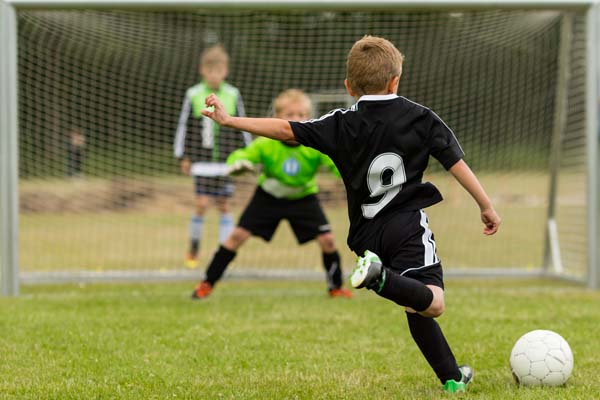When discussing the benefits of playing sports, most people can rattle off a list of physical health benefits. While those are fantastic reasons to take up a new activity, the social and mental health effects are often left out of the conversation. Still, joining a sport is a great way for people of all ages to learn much-needed skills and lessons.

This remains true whether your child takes up a popular team sport, such as football or rugby, or they are more interested in a solitary pursuit like climbing. There is a sport out there for every interest and personality type, and each can teach them something that can change them for the rest of their life. So, here’s a round-up of some of the most common life skills kids can learn from taking up a sport.
1- Learning to Lose
In any sport, there is a competitive edge, and the skill of being a good loser will take them far in life as it can prepare them to face disappointments. While no one wants to lose, facing losses can help kids learn to accept and manage adversity safely and healthily. Frank Sonnenberg, an award-winning self-help author, shared in his 2017 Linkedin article that he believed that losing could increase people’s determination to succeed. He wrote: “[Losing] proves that when you’re steadfast, you can overcome almost any challenge in life.”
2- Commitment
Whether your child attends their activity three times a week or once a month, they are expected to commit to practices and lessons. This teaches them the importance of honouring their commitments and can help them grow to become dependable adults.
3- Confidence
Sports allow your child to make their own choices and decisions during physical activities in a safe environment. When your child engages in solo activities like rock climbing, they are forced to make and stick to their own choices to progress. This gives them confidence in their independence and decision-making skills and increases their overall self-esteem. Davina Erwee, a sensei from Goju Ryu Karate Qatar, says: “I have personally seen over the years how karate is able to help shy children develop into leaders and help children who would be seen as bullies to acknowledge their actions and change to become more helpful and caring young people.”
4- Resilience
Not everything in life goes the way according to plan and living an expat life means, more often than not, facing curve balls that are thrown your way. Children especially need to learn how to deal with this by developing resilience. Learning how to rise from mistakes and knockbacks in sports is a practical lesson in this life skill.
5- Self-awareness
Understanding how your body moves, how you are best placed to perform specific acts, and that every action has a consequence can foster self-awareness. In fact, Davina says that she has seen the children in her dojo extend this newly-learnt awareness and respect to their peers and seniors.
Christophe Clement, a fencing master and coach at Clements Sports in Doha, agrees. He says that sports (like fencing) are actually so much more than just a sport – they teach children self control, respect, and problem solving in a practical way. They allow children to see how making one move will affect their opponent, the game, and ultimately, their next move. This, he says, is similar to real life, where one decision can change everything.
6- Teamwork
Whatever team sport you play, you learn to play as a team member rather than just for personal gain. This spills out from the field to other aspects of life.
7- Mental Strength
In athletic circles, it is often believed that an athlete’s mindset can significantly impact their performance. Because of this, many learn to cultivate a positive attitude early on. That’s why Liz McColgan, a former British Olympian and the founder of Doha Athletics Club, believes that sports can help increase children’s well-being and strengthen their mental skills outside traditional settings. “Not every child can learn these skills in a classroom environment. Strong bodies and mindsets can be developed over time which helps with concentration and creates renewed energy for learning,” she says.
8- Goal Setting
It can be difficult for children to grasp the concept of goal setting, so practising this skill while playing a sport can help. Additionally, following through with their goals and achieving them can increase their sense of accomplishment and bolster their confidence.
9- Perseverance
Learning to persevere can often be the difference between success and failure. All sports can be brutal, and facing challenges while participating in them is inevitable. However, those challenges will push kids to keep striving forward to do their best.
10- Aspiration
While this isn’t technically a benefit of playing sports, children watching professionals participating in their chosen sport at the top of their game inspires them to dream bigger. With the FIFA World Cup coming to Qatar in a few short weeks, we can expect to see plenty of budding Lionel Messis racing around the compounds. This spark could lead to children taking up a new sport that may not have been on their radar. Remembering the strength and speed of their role models can also give them the motivation they need to power through challenging training sessions.
It seems clear that regardless of the sport your child (or you!) choose to play, the skills they earn from them are ones they can hold onto for life. And with the variety of choices available in Qatar, from football to horse riding, almost anyone can reap the benefits.